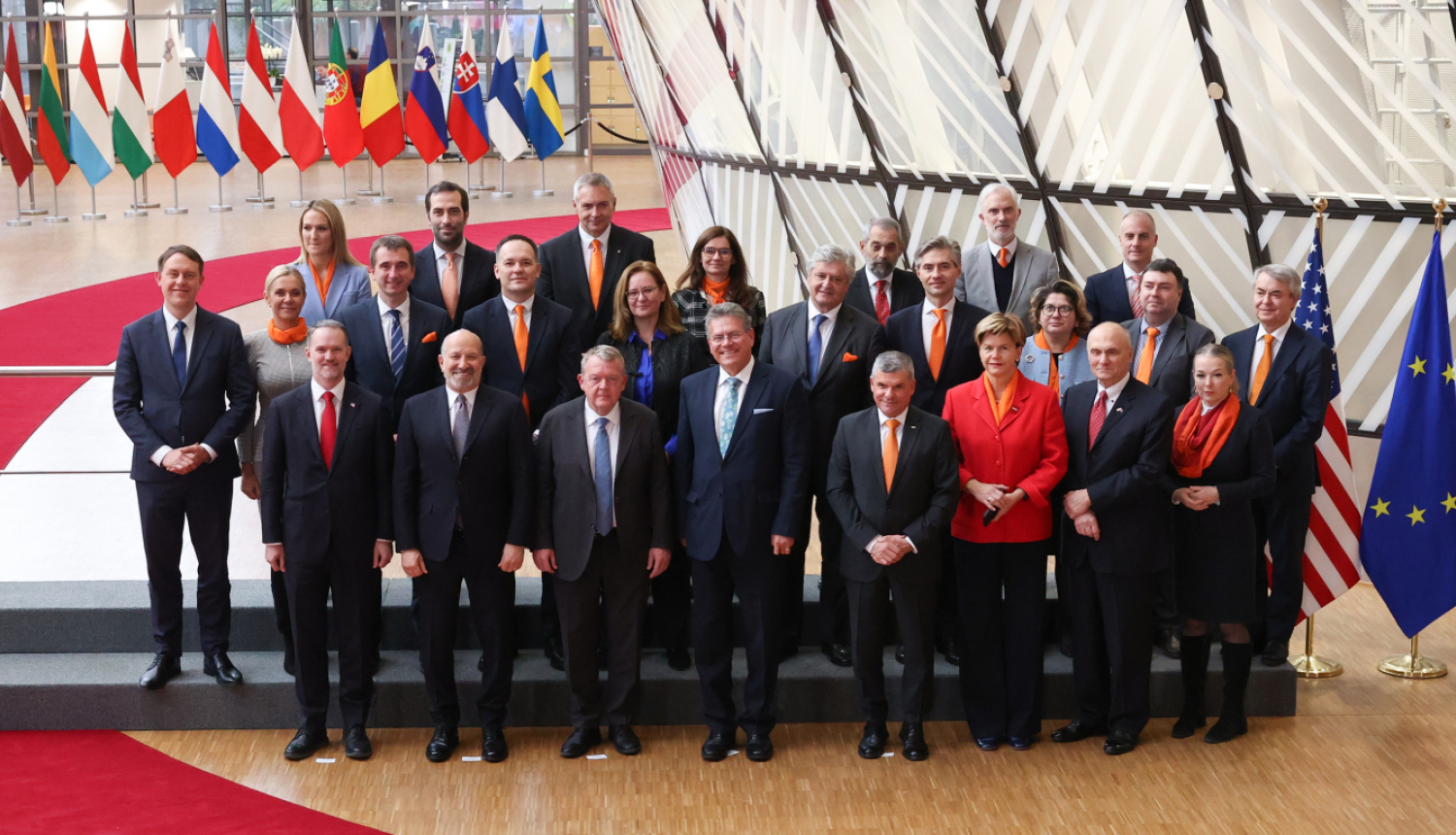On 24 November 2025, at the European Union (EU) Foreign Affairs Council in its Trade configuration, the Minister of Foreign Affairs, Baiba Braže, together with other EU Member State ministers discussed the EU-US and EU-China trade relations as well as other agreements and the EU’s bilateral trade talks currently underway, with India in particular.
Foreign Minister Baiba Braže: “Together with EU ministers and the US Secretary of Commerce, Howard Lutnick, and the US Trade Representative, Jamieson Greer, we had a discussion on EU-US trade relations, as well as cooperation in defence and the energy and technology sectors. The US is and will remain our strategic partner and a close ally; therefore, the EU must further strengthen the transatlantic trade relations and cooperation with the US.”
Estonia, Finland, Germany, Latvia, Lithuania, Poland and Sweden call on the Commission to put forward proposals on additional import tariffs on products coming from Russia and Belarus. “In international trade, the EU and its Member States must be able to ensure that national funds, as well as all taxpayers’ funds, go only to those countries that respect international law and the fundamental principles of the UN Charter, and not to aggressors. The EU must use all the instruments at its disposal to reduce dependence on trade with unreliable and hostile countries such as Russia and Belarus, because this money goes to the Russian budget and helps finance the war of aggression against Ukraine, which is unacceptable. This is a matter of security for Europe as a whole,” Baiba Braže emphasized.
In a discussion on other EU agreements and the ongoing EU bilateral negotiations, Baiba Braže underlined: “In the current geopolitical situation, it is extremely important to use all the available EU instruments – trade agreements, new partnerships, market protection mechanisms and others, so that our entrepreneurs can successfully operate in new markets and obtain funds for defence financing. It is also important to ensure that EU businesses are not exposed to unfair competition.”
Ministers welcomed the progress made by the European Commission in negotiations with India, Indonesia and Thailand. Baiba Braže stressed that the positive impact of the EU expanding the network of its trade agreements with trusted partners over the past two decades is clearly visible globally. For example, since the entry into force of EU free trade agreements, exports to Korea have increased almost tenfold (since 2011), to Canada, by 166% (since 2017) and to Japan, by 49% (since 2019).
Regarding the EU-Mercosur Free Trade Agreement, Baiba Braže stated: “This is a strategic partnership with Latin American countries that will promote European and Latvian exports to new markets and create new jobs. With the agreement in place, the world’s largest free trade area will be established, covering almost a quarter of global GDP, creating a market of more than 700 million people with enormous economic potential and enabling EU companies to save 4 billion euros in export duties annually. Entry into the South American market will be facilitated by lower or completely abolished customs duties and simpler customs procedures. For example, in the European Union, this agreement provides for a significant reduction in customs tariffs – up to 20% for machinery, cars and ICT products, and around 30% – for dairy products, wines and chocolate.”
In a discussion on EU-China trade relations, ministers considered the need to continue implementing a risk mitigation strategy at the EU level, in particular, by diversifying trade and suppliers of critical raw materials.




